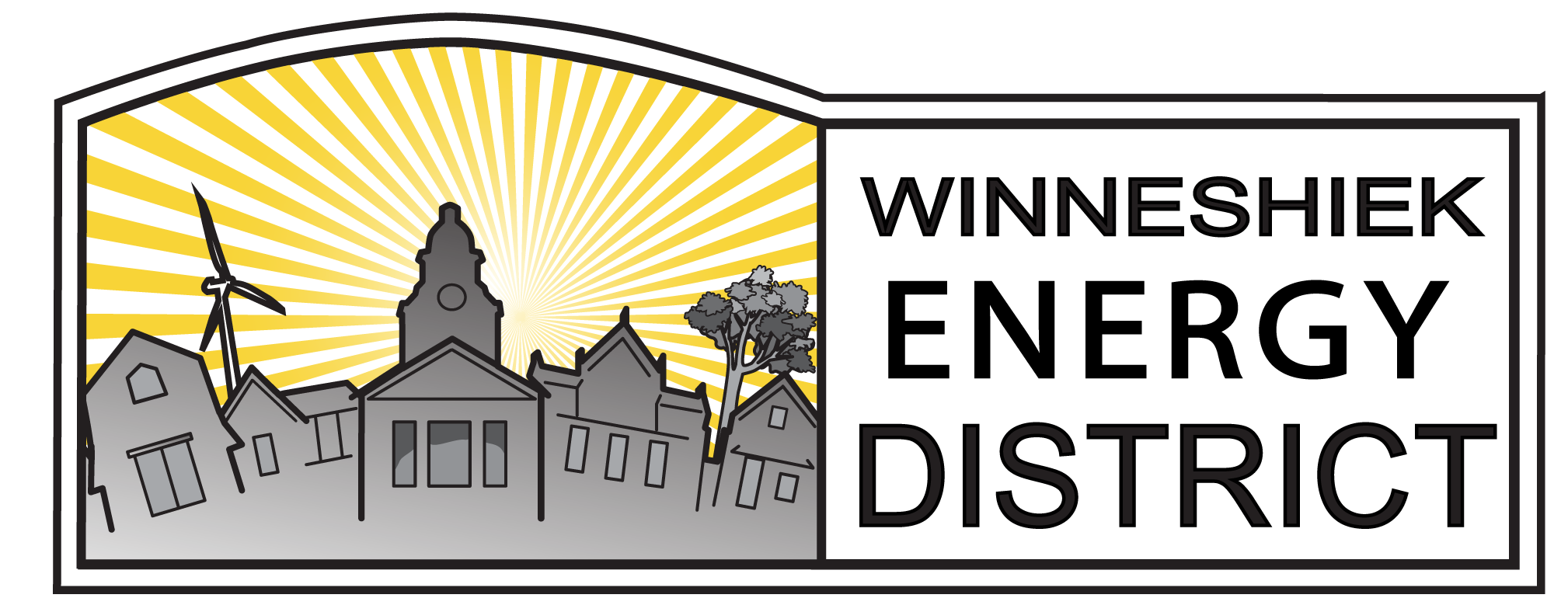In 2012, we partnered with local contractors to convert a common 1950s home into a net-zero home.
“Net-Zero”
The home is considered a “net-zero home” because it’s carbon emissions from energy use will be avoided or offset – leaving the home with a net-zero carbon footprint. An average Midwest home creates about 17 tons of carbon emissions per year. The Net-Zero home achieves it’s zero carbon goal through a combination of energy-efficiency, on-site power production and the purchase of Oneota Tags – a local carbon offset program managed by the Winneshiek Energy District. The homeowner originally wanted to make the house a net zero energy home but creating all our energy on site for this particular house wasn’t going to be cost-effective. However, the project ended up reducing annual energy costs by about 75%, a solid achievement.
Energy Efficiency
Before this project, there was little to no insulation in the entire house, and that’s pretty typical for homes that were built 40 or more years ago. We’ve projected that our improvements have reduced the heating needs of the house by over 70%.
All homes can be made more efficient, some drastically so. Making a home more energy efficient isn’t rocket science, all of the work on this home can be done on other homes as well. Almost every home has opportunities for saving energy and making those improvements can save homeowners a lot of money”.
Solar Panels
Solar panels on the roof of the house will produce as much electricity as it needs over the year – the home’s residents will only need to pay the meter fee – an electric bill less than $15 a month!
Oneota Tags
The only fossil fuel the home will use is a small amount of natural gas for space heating during the coldest parts of the year and for water heating year round. Oneota Tags will be purchased to offset any carbon impacts of the natural gas.
The Oneota Tags program is the first local carbon offset program in Iowa. Proceeds from the sale of Oneota Tag local offsets go towards purchasing simple “direct-install” supplies such as efficient light bulbs and showerheads and basic weatherization materials. These are then installed in local homes by the Decorah Green Iowa Americorps team.
Video
We wanted to show people the process of remodeling the home, so in addition to the open houses, we documented the whole project with a video. The video will allow us to reach a greater audience and show people some of the processes of creating a very energy efficient home.
